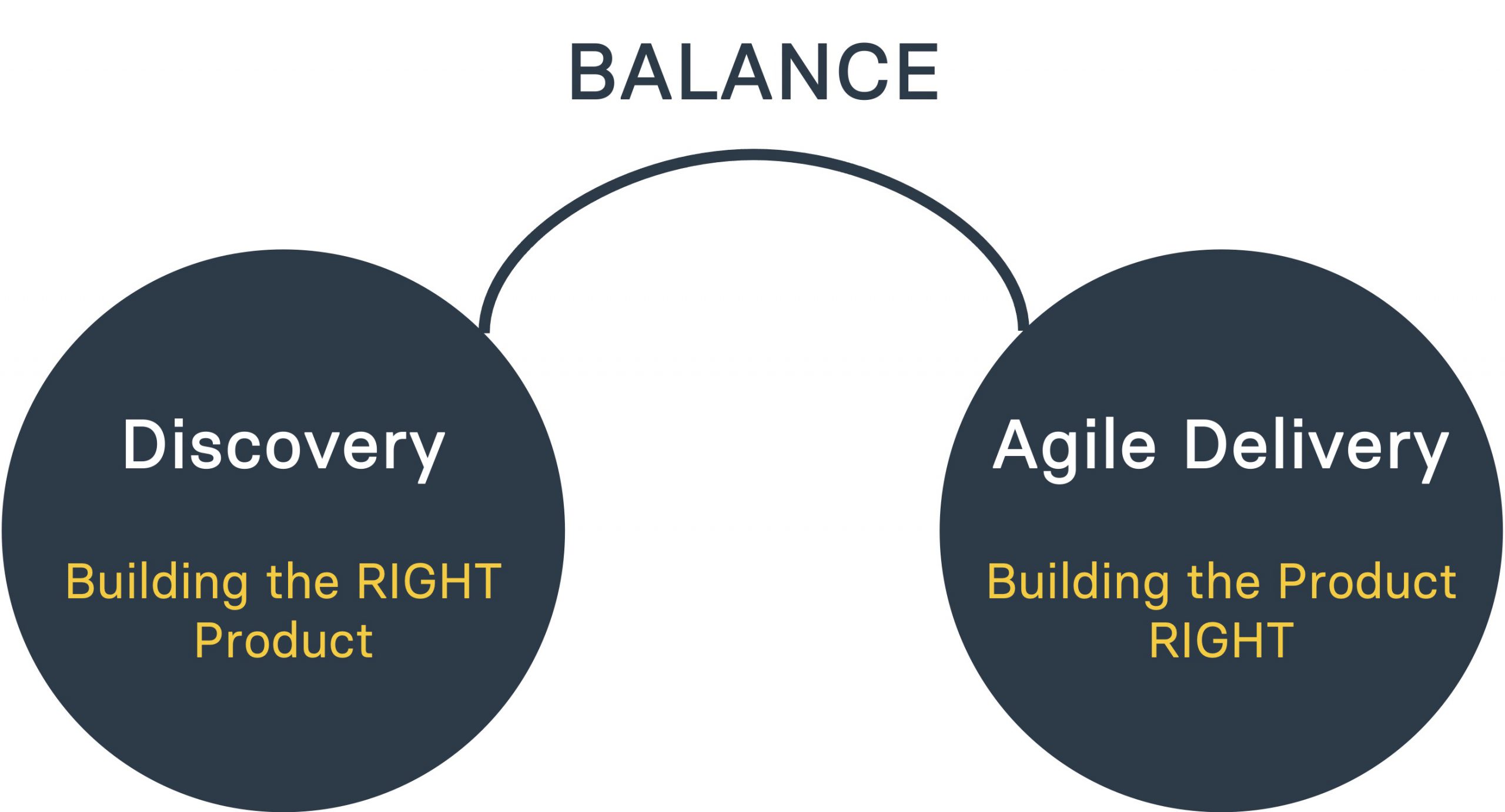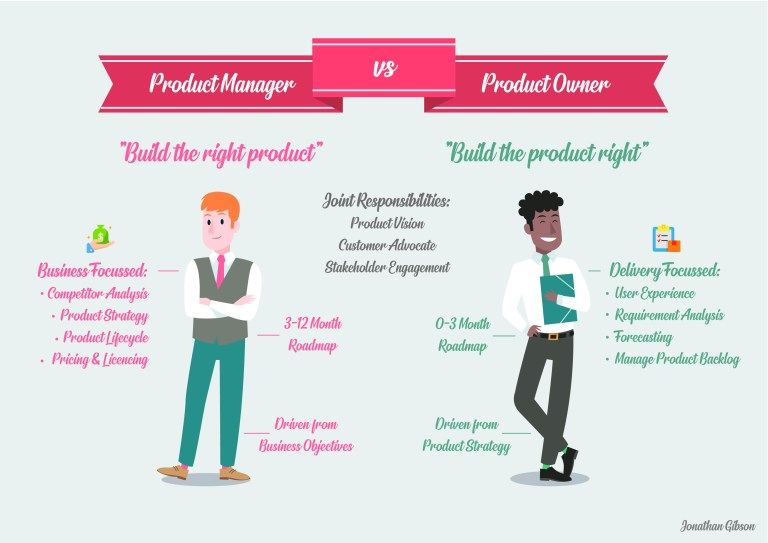The Product Manager Role
As a product manager, it is your job to build (digital) products that solve customer problems, delight your customers, and create value for your organization.
Your main responsibilities typically consist of:
- listening to your customers and their problems
- running experiments and building prototypes
- delivering value (shipping features) to your customers together with your team of engineers and UX/UI designers
- maximizing the effort/impact ratio or ROI for your organization
- optimizing the existing product
In your role as a product manager you face 4 major challenges:
- Value risk: Will users buy the product?
- Usability risk: Can users figure out how to use the product?
- Feasibility risk: Can we build the product?
- Business viability risk: Does the product work for the whole company?

To mitigate those risks the best product managers spend time on product discovery (“building the RIGHT product”) and product delivery (“building the product RIGHT”) and are equipped with the right frameworks and techniques for both phases.
Skills
Great product managers typically share the following common skills and attributes independently of the specific environment:
- High intellectual grasp
- Naturally curious
- Strong passion for building products that customers love
- Empathic and great communication skills
- Strong discovery and delivery skills
- Strong problem-solving and analytical skills
- Solid tech skills
Product Manager vs. Product Owner
The role “Product Owner” is quite common in small organizations/startups with less than 200 employees. In most of these cases, however, I believe this is not the accurate title and often leading to less impact the product team could provide for the growing organization if instead empowered product managers were in place.
While the Product Owner is a specific role within the SCRUM framework, it is the Product Manager who will discover and deliver impactful solutions for the customer. Thus, regardless of the title, as long as it is reasonably manageable, product discovery and product delivery tasks should be owned by 1 person.

Alright, now that we know what the responsibilities of product managers are we can dive into how they actually do their job.

